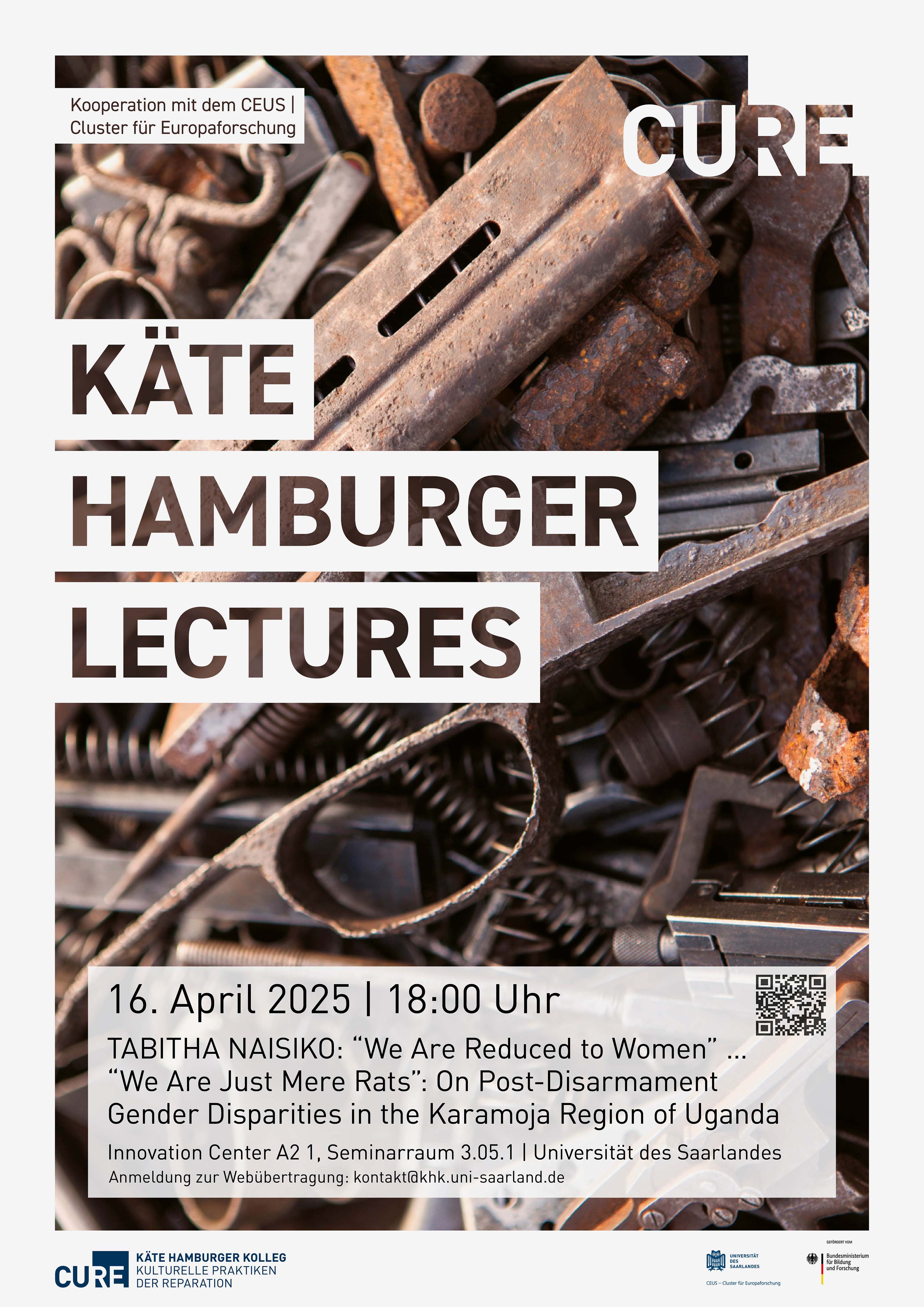Käte Hamburger Lecture mit Fellow Tabitha Naisiko
WANN
WO
Universität des Saarlandes,
Innovation Center A2 1,
Seminarraum 3.05.1
SPRACHE
ENGLISCH
PROGRAMM
Das Käte Hamburger Kolleg für kulturelle Praktiken der Reparation (CURE) und das CEUS | Cluster für Europaforschung laden herzlich zur Käte Hamburger Lecture an der Universität des Saarlandes ein. Im Fokus der Vortragsreihe stehen aktuelle Forschungspositionen der CURE Fellows zu kulturellen Praktiken der Reparation. Nach den Vorträgen können die vorgestellten Themenschwerpunkte in einer öffentlichen Diskussionsrunde vertieft werden.
Tabitha Naisiko: “We Are Reduced to Women” … “We Are Just Mere Rats”: On Post-Disarmament Gender Disparities in the Karamoja Region of Uganda
The title of this lecture quotes outcries of men living in the Karamoja region of Uganda, situated at the border with Kenya and South Sudan. Tabitha Naisiko argues that their bitter complaints arise from an anthropological lack in the post-disarmament development strategies. For Naisiko, the central problem lies in the mismanagement of gender relations: By prioritising women as change agents, efforts to develop the region have created gender disparities resulting in a masculinity crisis. Gender as a social structure has become dysfunctional. As a result, women are overwhelmed with both productive and reproductive roles while men are struggling with alcohol, violence, and social lethargy. These conditions impede sustainable development. In her lecture, Naisiko explores how existing social norms and gender relations can be incorporated into development efforts in order to establish successful programmes creating positive change.
Die Käte Hamburger Lectures bieten einen Einblick in die aktuellen Forschungsarbeiten des Kollegs, tragen diese in die Universität hinein und laden die interessierte Öffentlichkeit zu einer Diskussion über kulturelle Praktiken der Reparation ein.
Anmeldung zur Webübertragung: kontakt@khk.uni-saarland.de.
